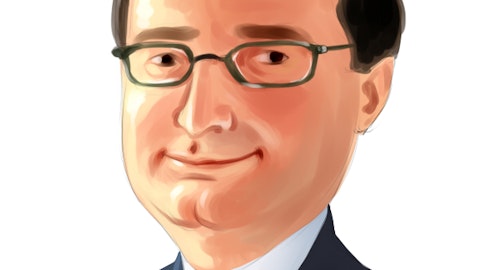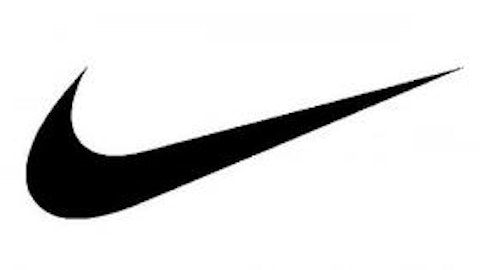In its financial results for the second quarter, announced this morning, Philip Morris International Inc. (NYSE:PM) beat estimates for both the top and bottom lines by delivering EPS of $1.21 and revenue of $8.86 billion, the latter of which nonetheless marked a fall of 12.1% on a year-over-year basis. Analysts expected the company’s second quarter EPS to land at $1.13, with revenues of $6.73 billion. However, if the impact of currency movements, acquisitions, and excise taxes is excluded, revenues jumped by 4.5%. The cigarette shipment volume took a 1.4% dip to 219.8 billion units. Operating income, on the other hand, rose by 0.6% to $3.0 billion from the same quarter last year. The company reaffirmed its full year EPS forecast to fall in the $4.32 to $4.42 range. Moreover, Philip Morris International Inc. (NYSE:PM) also announced the dissolution of its agreement with Swedish Match AB to commercialize Swedish snus, a moist powder tobacco, and other smoke-free tobacco products outside Scandinavia and the U.S.

360b / Shutterstock.com
Professional money managers don’t appear to have been caught off-guard by the results, as they had an overall bullish outlook towards Philip Morris International Inc. (NYSE:PM) during the first quarter. Although the number of hedge funds among those that we track which had investments in the company decreased to 42 at the end of March from 44 at the end of the previous quarter, the aggregate investment increased to $2.87 billion from $2.60 billion during the same period. This is despite a 6.6% slide in the cigarette manufacturer’s stock price during the first trimester, meaning smart money poured over $400 million into the stock in the first quarter. They have been rewarded with a stock that is up by more than 10% since, and by more than 2.5% this morning alone following the positive earnings results.
We follow hedge funds because our research has shown that their stock picks historically managed to generate alpha even though the filings are up to 45-days delayed. We used a 60-day delay in our back tests to be on the safe side and our research showed that the 15 most popular small-cap stocks among hedge funds outperformed the S&P 500 Total Return Index by an average of 95 basis points per month between 1999 and 2012. After adjusting for risk, our calculations revealed that these stocks’ monthly alpha was 80 basis points. We have also been sharing and tracking the performance of these stocks since the end of August 2012, during which time they have returned 140%, outperforming the S&P 500 ETF by 81 percentage points (see more details here).
As far as insider trading goes, no insider purchases have been detected in Philip Morris International Inc. (NYSE:PM) this year, but two insider sales have occurred. Director Louise Camilleri sold 55,000 shares in May, while CEO Andre Calanzopoulos disposed of 30,000 shares in February of this year.
Let’s take a more detailed look at which segments of the hedge fund industry in particular are showing greater enthusiasm in the company.
What does the smart money think about Philip Morris International Inc. (NYSE:PM)?
At the end of the first quarter, a total of 42 of the hedge funds tracked by Insider Monkey were long in this stock, a decrease from 44 funds at the end of the previous quarter. With the smart money’s positions undergoing their usual ebb and flow, there exists a few notable hedge fund managers who were upping their holdings substantially.
Of the funds tracked by Insider Monkey, Andy Brown‘s Cedar Rock Capital had the most valuable position in Philip Morris International Inc. (NYSE:PM), worth close to $905.7 million, and accounting for a bullish 24.2% of its total 13F portfolio. Sitting at the number two spot is Tom Russo of Gardner Russo & Gardner, with a $760.4 million position; the fund has 6.8% of its 13F portfolio invested in the stock. Other members of the smart money that hold long positions include Peter Rathjens, Bruce Clarke, and John Campbell’s Arrowstreet Capital, Phill Gross and Robert Atchinson’s Adage Capital Management, and Jim Simons‘ Renaissance Technologies.
Due to the fact that Philip Morris International Inc. (NYSE:PM) has experienced a decline in hedge fund ownership, it’s safe to say that there is a sect of funds who were dropping their positions entirely heading into the June quarter. Intriguingly, Matthew Tewksbury’s Stevens Capital Management dropped the biggest investment of the “upper crust” of funds tracked by Insider Monkey, worth an estimated $32.3 million in stock, while Brian Ashford-Russell and Tim Woolley of Polar Capital were right behind this move, as they dumped about $20.7 million worth of shares. These moves are important to note, as aggregate hedge fund interest fell by two funds heading into the second trimester.
Despite an earnings beat, we don’t see significant upside potential in the stock. While hedge funds were bullish in the first quarter, we think what they’ve been rewarded with thus far has been ample, and anticipate bullish behavior from them in the second quarter. We would advise investors to look for more profitable opportunities in other companies.
Disclosure: None




